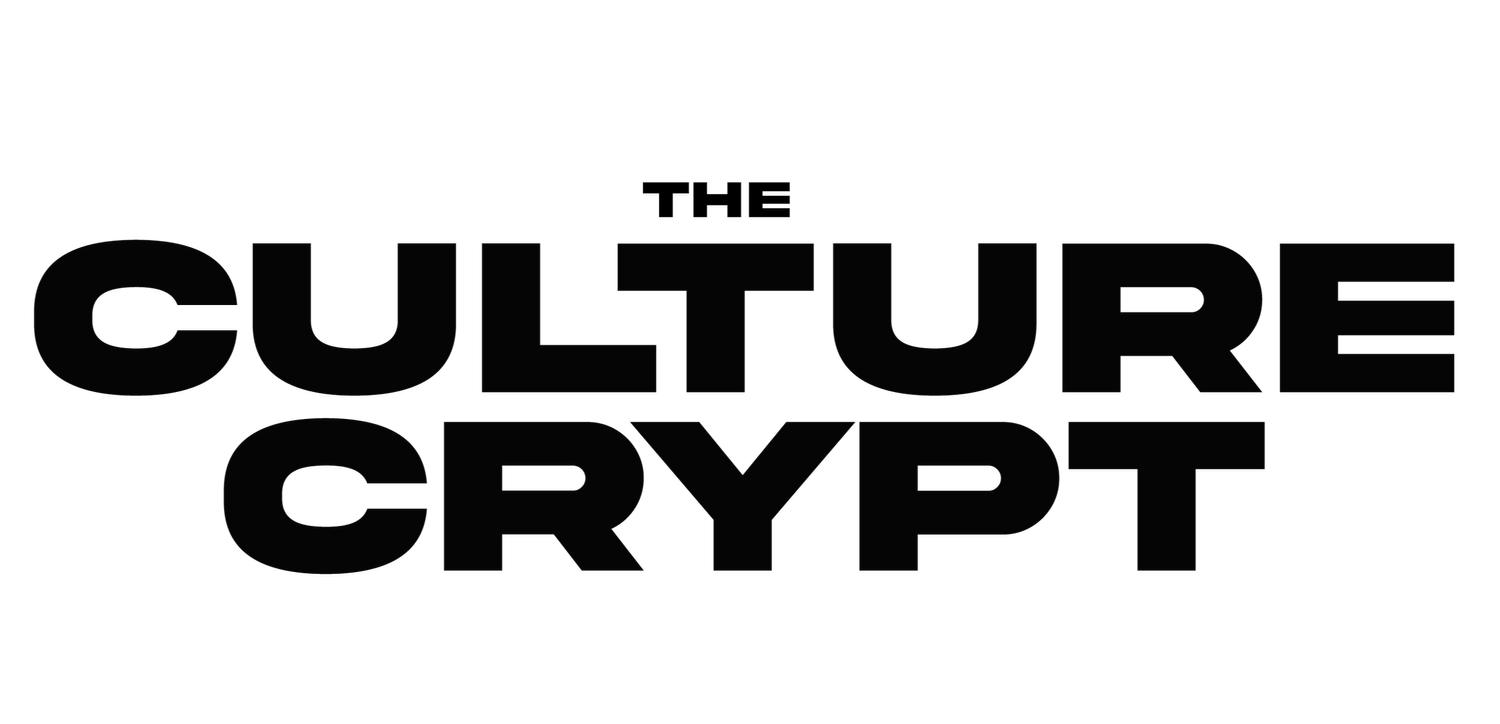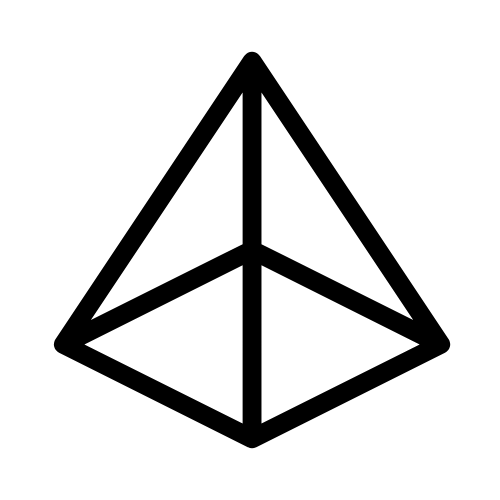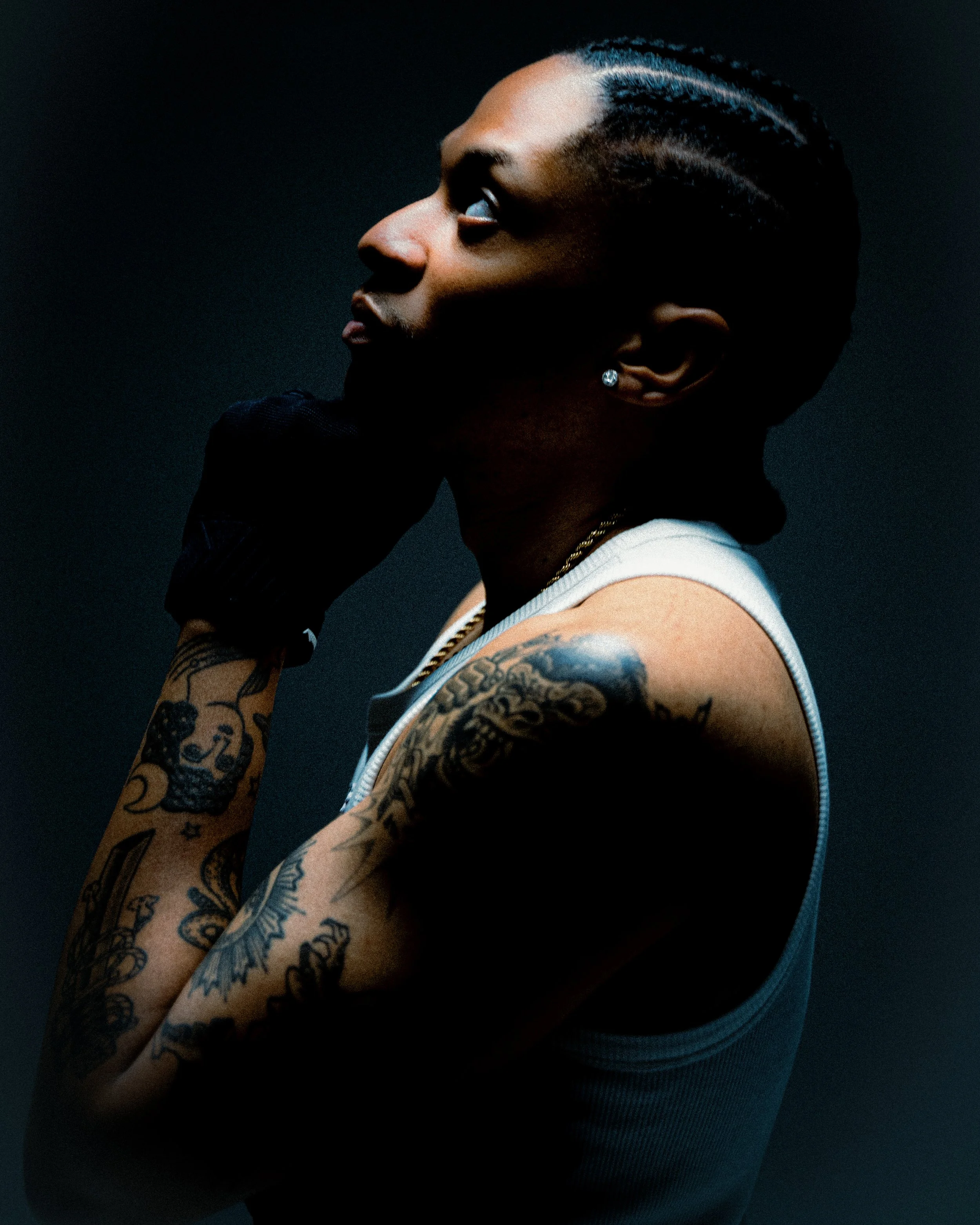Lou Phelps is Going Back to What Works
Rapper Lou Phelps joins The Culture Crypt to plot his artistic beginnings with brother Kaytranada, his 'French connection' and future sounds.
Does understanding the lyrics to a song in a foreign language deepen the experience? Maybe. But rhythm precedes rhetoric when, from Italian drill, K-pop or West African psychedelic funk, language is often not a barrier to enjoyment. Or so Lou Phelps tells me, an artist whose unique blend of Franglish—by way of Haitian and French-Canadian association—is setting him apart in world music.
Hailing from Saint-Hubert, Québec, Phelps began his musical career as part of the duo The Celestics alongside big brother, acclaimed producer Kaytranada. With Phelps supplying bars and Kaytranada supplying beats, together, they released projects like Massively Massive (2011) and Supreme Laziness (2014), which helped establish their presence in the Montreal music scene. However, Phelps eventually set out to define his own path as a solo artist, releasing albums such as 001: Experiments (2017), 002: Love Me (2018) and 003: Extra Extra (2020).
But starting a new chapter can be all things: scary, freeing and exciting. For Lou Phelps' triumphant return in his new EP TOP Z, however, it is heavy on the excitement. Caught between home in Montreal and his next stop in Michigan, I stole a moment to chat about the daring decision to decentre the world's lingua franca from his music, touring and trying out a new look.
The Culture Crypt: The title of your EP comes from your nickname, but where does the TOP Z mantle come from?
Lou Phelps: "The nickname comes from my little cousin. The 'Z' is from a term Americans use to identify Haitians specifically, called 'zoe'. My cousin calls me that 'cause he thinks I have that—I don't wanna say 'aura', but he's 27; I think that's what he would define it as. I guess it's just the way that I live. I'm always calm, cool, and collected, and he's impressed by that nonchalance. But it's more of a lifestyle. It sounds so cliché and corny to say that, but TOP Z is a way to be."
Well, what would you say is new about the TOP Z chapter?
"Different flows, different energy, different subject content. It's a bit more precise than my previous work. But I feel like I haven't stopped growing. I've allowed myself to explore new sounds and give my fans what they like, along with something a bit different. 'Tell Nobody' is definitely more melodic, with more singing. 'Check Check', I was recording that with my cousin, The Hottest Z.
We were in the studio, we heard the beat, he came up with his part, and I tried to emulate the youthful energy he brought to the song. That's the vibe of TOP Z—that youthfulness. My way of working: I wake up, and from 10 AM to 6 PM, I stay in the studio and try to make something. At the time, I used to smoke a lot—but I treated it like a 9 to 5. It was my office job, and I wanted to give in my 10,000 hours."
I've heard it's a taster for your next album, Chèlbè. What can we expect from the next project?
"'Chèlbè' is Haitian Creole slang, used to mean 'well put-together' or 'fly'. It's similar to TOP Z, which is more American-sounding, but 'Chèlbè' is slang that Haitians actually use. You know how Congolese people say 'sapé' [Congolese slang for 'dressed up'] where they dress super clean with suits, crazy colours, and that vibrant energy? That’s what I want to bring with Chèlbè. It’s a dancier album too, so it’s back to what works. Back to what people know Lou Phelps for."
“It’s a dancier album too so it’s back to what works. Back to what people know Lou Phelps for. ”
Can we expect "Prolly Us" to be on there?
"Oh yeah! I forgot people heard that because I haven't even watched the performance for some 'Prolly Us' will be the first single of Chèlbè. I don't think I will call it 'Prolly Us', though. I think I'm going to call it 'Luh'."
What about the people who are going to try and find the song after that?
"I know, I know! But I feel like it just looks better when I envision the tracklist because I want it to be the intro to the album and I think that 'Luh' just looks better. You’re right though, I probably should keep it as 'Prolly Us'."
What's going to define your visuals for this next album?
"I think I want to commit to this Afro. The Afro is definitely more Haitian than having braids, for men, at least. I can do something nice with it when it's washed well and hydrated. It can also be an era: 'Lou when he had the Afro'.
I also wanted to portray these—they call it 'bal Haitien,' which is a party where people dress well and listen to Haitian music, and hopefully, they go and dance with a girl or get a number. I want to bring that energy back to life and see how I could mix up the classic Kompa aesthetic with modern dance/hip-hop. I don’t know how you'd say it in English, maybe 'Haitian ball,' but I want to portray that dance hall culture where sometimes they just rent a big room and have a band playing."
Since Kompa has gone mainstream, has it been particularly important for you to draw inspiration from your heritage?
"Growing up, people would clown you if you represented Haiti too much. But nowadays I think, 'Fuck it. That's part of me. That’s my identity.' Not only that, I'm French-Canadian as well, so there are loads of us in Montreal or Quebec. It's a subculture in itself and this is what I'm trying to portray with this album and this EP and in whatever phase I'm going through right now, just accepting myself fully.
Mach-Hommy is one of the artists that I met that kind of implant that in my head—like you've got to be proud of where you're from. Michaël Brun as well is one of those artists that's very proud of being Haitian. So I was like, 'You know what, man? Let me embrace that part of me.'"
“Mach-Hommy is one of the artists that I met that kind of implanted that in my head—like you’ve got to be proud of where you’re from. ”
You've said before, as a French-Canadian, that you've had to adjust the language in your music to English to reach a wider audience. What do you think about that decision now?
"I don't care anymore. The world is so open now, and the internet has broken those barriers. Some people from Montreal could live in the UK, Asia, or wherever. My analysis is that people don't care about what you say in songs. If they like the energy that you put out, they'll be drawn to your music regardless.
"In Montreal, we pretty much have our own language called Franglish, which is French and English, with a sprinkle of Creole. But no one has done Franglish and has blown up off of it because it's still so niche and specific to Montreal. Blending the Franglish with the English, for me, would be perfect."
I was meant to see you perform at All Points East this year! How was that? How was London?
"London is one of those cities that feels like home. I don't even have family here, but I have friends there that I consider family. I also wasn't expecting the type of crowd I got, but I was on the big stage and saw people running from afar to watch my set, and it was so heartwarming. London has love for me, and I have love for London back."
So, do you need help validating yourself in the industry?
"I guess so. When I first started making music, a lot of people would tell me that people only listen to me because I'm Kaytra's brother. This kind of messed with me for some time, and I kind of believed them for a minute. But when I got signed to Rostrum Records, I thought, "I don't think they're right." I've always loved making music; music was always a part of my life, so why would I even listen to them trying to discredit what I make?"
You've got a show in Michigan next. What's been great about the tour so far?
"It's my third or fourth tour with Kay. Actually, on every tour he's done, I've either DJ'd to open or rapped. I've always felt comfortable on stage, getting a crowd going or getting people to vibe with me. Performing in Vancouver was sick—the visuals, the crowd energy. But seeing the actual Kaytranada show? The new set is amazing. It feels nice to see him upgrade again and again."
Where would you like to branch out to?
"London. The UK. Basically Europe. I don't know if you guys remember Chitty Bang. Chitty Bang was like this producer-rapper duo from the US that blew up in the UK and then the US. As a kid, I was like I wanna be like them. Skepta is also someone I really look up to, and I would love to have a career similar to his. Like he's not necessarily young, you know? It took him some time to be… at least for me to know him.
I know the UK has known him for some time. But he is a great artist, whether it comes to music or whatever endeavour he pursues. I look up to him for that. So I guess the UK. I just love London, to be honest."
Do you ever look back at your time in The Celestics?
"My whole journey into being an artist, I really didn't care about music as much as I care about music now. Back in the day, it was very "this is what this song tells me, I'm gonna say what I feel…" Is it a more artistic approach that way? I don't know. I'm not proud of my older work, but at the same time, it's always good to listen to what you did before to have a grasp of what people know.
I actually don't like looking back because I know I said some cringey shit, my inspirations were all over the place, and you can really tell I'm a kid in those older albums. Some of them, I removed for that reason. I recorded them off of a Guitar Hero mic. It was very grimey, do-it-yourself. People are attached to the Celestics, but I've still been working with Kay, you know? He's been giving me beats for my whole career. It's just the name. I guess it's cool to have a duo to make it look like a union. But we're still unified."
Stream TOP Z below:



